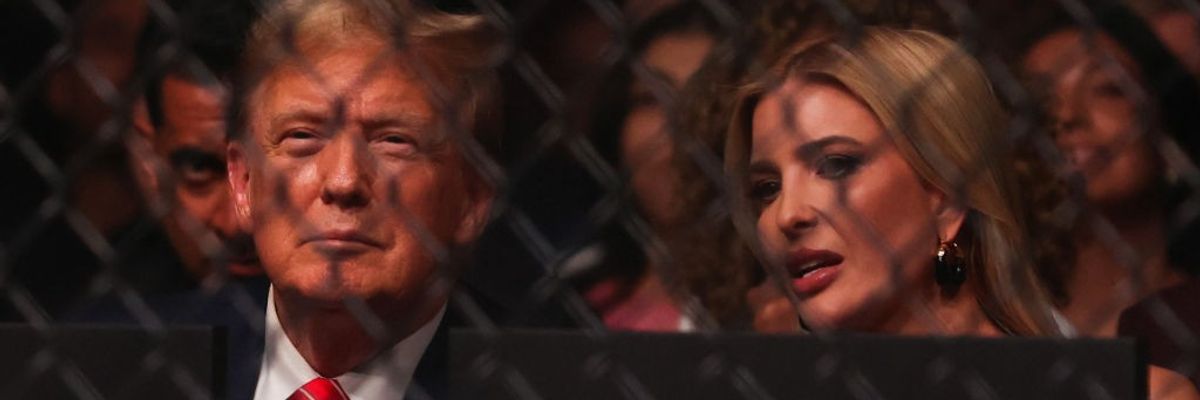Former President Trump’s criminal prosecutions, the first of which headed to trial this week in New York state court, are a historic first for the United States. But such prosecutions are not especially rare in the global context. Indeed, many other countries have investigated and prosecuted both sitting and former national leaders for alleged wrongdoing. Such cases should never be pursued lightly, as they introduce very real risks for a democracy. If done right, however, holding top officials accountable when they commit serious misconduct is a hallmark of liberal democracy and essential for the rule of law.
Trump is one of several world leaders currently facing criminal proceedings. In Israel, Prime Minister Benjamin Netanyahu was indicted in 2019 for fraud, bribery, and breach of trust. He has been fighting to stay out of prison ever since. If convicted, Netanyahu would be the second Israeli prime minister to serve time in prison for corruption.
Last month, the Brazilian federal police recommended criminal charges against former President Jair Bolsonaro for allegedly falsifying his Covid-19 vaccination record. Bolsonaro is also facing an investigation related to the January 2023 attack on Brazil’s presidential complex by his supporters after his election loss. This attack bore striking parallels to the January 2021 attack on the U.S. Capitol, which is the basis for one of the criminal cases against Trump.
And in Peru, prosecutors recently raided the official and personal residences of President Dina Boluarte on suspicion of “unlawful enrichment.” She, too, is not her country’s first leader to face prosecution.
Other long-standing democracies whose former leaders have faced criminal prosecution include France, where two former presidents have been handed criminal convictions for corruption and campaign finance violations; Portugal, where a former prime minister is contesting a court-ordered trial for money laundering; Italy, where former Prime Minister Silvio Berlusconi was convicted of tax fraud and embezzlement; Costa Rica, where two former presidents have been tried for corruption; South Korea, which also convicted two of its former presidents for corruption; and Iceland, which tried a former prime minister for alleged crimes related to the 2008 financial crisis.
Even in the United States, many top politicians, including dozens of governors and state and federal legislators, have faced criminal charges during or after their time in office. For example, four of the last ten governors of Illinois have gone to prison. And Democratic Sen. Bob Menendez of New Jersey currently faces charges of bribery, corruption, and obstruction of justice.
Two former U.S. presidents have come close to being indicted. A draft indictment, unsealed in 2018, showed that a federal grand jury planned to charge former President Richard Nixon with bribery, conspiracy, obstruction of a criminal investigation, and obstruction of justice — and was forestalled only by the blanket pardon President Gerald Ford granted to his predecessor. President Bill Clinton could have also faced criminal liability for giving false testimony about his extramarital affair with Monica Lewinsky, but he was able to avoid charges after agreeing to a temporary suspension of his law license and a fine.
To hold leaders accountable for serious wrongdoing is a hallmark of democracy, but weaponized prosecutions intended to settle political scores or sideline popular leaders are a real and serious concern. In Pakistan, for instance, popular former Prime Minister Imran Khan has been jailed on a plethora of opaque criminal charges, allegedly at the behest of his political opponents and the country’s powerful military. In Brazil, former President Luiz Inácio Lula da Silva was prosecuted and found guilty of corruption and money laundering charges in 2017 in what was widely considered an unfair trial, which prevented him from running again in 2018 and paved the way for Bolsonaro’s election. (Lula’s conviction was reversed in 2021, and he narrowly defeated Bolsonaro in the 2022 election.)
These examples serve as important reminders that prosecuting a former president or prime minister can have significant consequences and should never be pursued lightly. Criminal charges should only be brought based on credible evidence, and investigations and prosecutions must be conducted transparently and free from any political bias. The failure to do so, and even the appearance of political taint, can create grave risks for a democracy, including undermining trust in institutions and widening societal divisions. All of this underscores the need to proceed in such cases with the utmost care and according to the highest professional standards.
As the organization Protect Democracy has identified, there are a number of widely recognized criteria for assessing whether criminal proceedings against a high-profile political leader have cleared this bar. These include the quality of publicly available evidence, whether others have been held accountable for similar conduct, the political independence of investigators and prosecutors, and the robustness of other checks and balances, especially whether the courts can be trusted to afford the defendant due process and a fair trial. Sitting leaders should refrain from any behavior, including public statements, that might give even the appearance of involvement in an investigation or prosecution.
Although there is a very real risk to prosecuting leaders, and there is a high burden for meeting the criteria for appropriate criminal proceedings, democracies should still pursue accountability. The alternative — a culture of impunity for those at the top — is antithetical to democracy. Holding former President Trump accountable for criminal activity that is proven through a fair, impartial, and transparent process is essential — something both the former president’s supporters and opponents should remember. The stakes are high not only for him, but for American democracy.
